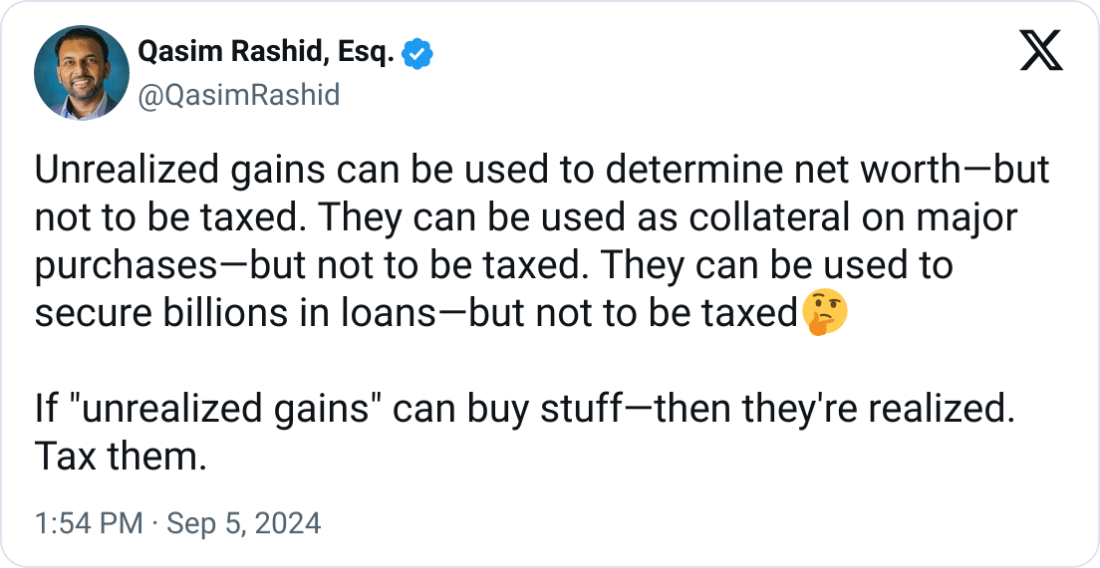this post was submitted on 19 Sep 2024
1598 points (96.8% liked)
Microblog Memes
7615 readers
3022 users here now
A place to share screenshots of Microblog posts, whether from Mastodon, tumblr, ~~Twitter~~ X, KBin, Threads or elsewhere.
Created as an evolution of White People Twitter and other tweet-capture subreddits.
Rules:
- Please put at least one word relevant to the post in the post title.
- Be nice.
- No advertising, brand promotion or guerilla marketing.
- Posters are encouraged to link to the toot or tweet etc in the description of posts.
Related communities:
founded 2 years ago
MODERATORS
you are viewing a single comment's thread
view the rest of the comments
view the rest of the comments

You seem to be using many different assumptions separately. In the first you assume you are maxing a Roth IRA (in my initial response I was also considering 401ks as many of them have Roth options nowadays). If you are maxing your Roth 401k and Roth IRA you are likely a high earner and therefore likely in a higher tax bracket than you will be in retirement. This means that kind of person will likely prefer traditional investments.
Your assumption there is someone maxing out their retirement options and in a relatively low tax bracket doesn't seem like reality. So in your math example they wouldn't be putting the extra in a taxable brokerage account but in the same tax advantaged account.
Quick edit: also I'm confused on the extra $400/year into taxable account. It should be $1,250 per year (25% of the 5,000) which would be closer to $600,000 before the capital gains tax.
You can't max both, you have to choose between them.
The math doesn't change if your contributions are smaller. This is a game of percentages.
You definitely can max both a 401k and IRA you can also max an HSA. All these combined allow for an individual (not family) to save $34,150 (there are some edge cases I'm ignoring). Someone who can afford to save almost the US median salary amount is almost certainly going to have a higher benefit from traditional than Roth.
Also, the math completely changes if you aren't maxing because if you aren't maxing the contribution than adding more to the contribution gives you more tax advantaged investments (instead of taxable brokerage investments).